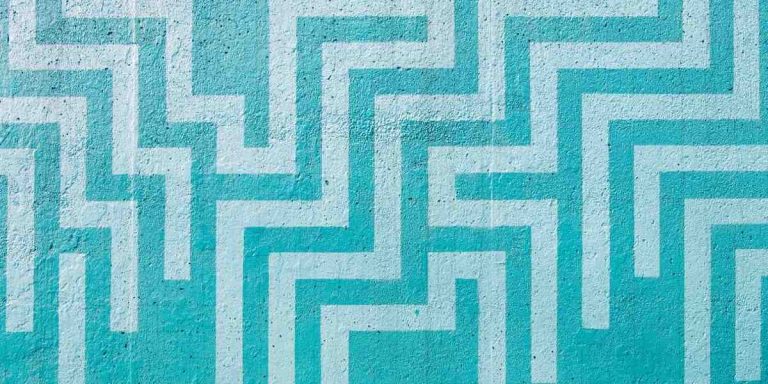We Need To Talk About Sleep
Our Consultant Clinical Psychologist GRAHAM FAWCETT takes a look at problematic sleeping.
If you’ve experienced no sleep problems at all since the pandemic began to directly affect you, then you’re in a comparatively small group. Typically, others are experiencing a range of difficulties including:
- Waking and feeling anxious in the middle of the night
- Racing thoughts leading to trouble getting to sleep
- Finding it difficult to control napping during the day or evening, leading to night sleep problems
- Phenomenally anxious or frightening dreams
- Sleeping but not being refreshed
- Sleeping extraordinarily long hours (and not being a teenager).
These are all very well-known phenomena and, usually, straightforward to resolve.
The Reassuring Bit.
Our bodies are built for sleep and will ensure we get the sleep we need. For the most part, sleep difficulties have some quite simple root causes that – over the course of a few days to a few weeks – resolve with some simple lifestyle adjustments. Occasionally, sleep problems may be a sign of an underlying physical issue. These issues are usually annoying, but not sinister (e.g. the menopause).
In sleep clinics, generally the most common underlying issues that disturb our sleep are too much caffeine, too much alcohol, too much fretting and too little exercise. The thresholds that are enough for each of these to impact our sleep are remarkably low. If those thresholds are sensitised further by increased anxiety (like most of us right now) then, even if we are used to certain levels of caffeine etc., problems begin to emerge.
As a rough guide, more than four shots of caffeine in a day (cola counts), two glasses of wine, staying in bed fretting for more than fifteen minutes at night or less than thirty minutes of daily moderate exercise (a walk for example) will impact our sleep rhythms and cascade into difficulties if we encounter additional stress.
What To Do?
Caffeine is a stimulant that hangs around in our bodies for hours. Roughly speaking the amount of caffeine in our system halves every five hours. Avoid caffeinated drinks in the afternoon or evening and dial back the caffeine you are consuming earlier in the day to no more than the equivalent of two espressos. If you’re feeling very motivated, try weaning yourself off caffeine steadily. Try to be caffeine free for two or three days and notice any differences in how alert you feel and your sleep quality.
Alcohol for the first glass or so is a mild stimulant, but further consumption is experienced as a depressant and anaesthetic. Any consumption on top of that will induce a coma-like state of sleep. But comas aren’t sleeping. The normal dream and deep-sleep cycles are disrupted and, when people come round, they don’t feel refreshed. Comatose like states are transient, with the result that people can wake up in the middle of the night and have trouble falling asleep again.
Fretting or worrying, often experienced as racing thoughts or thoughts that won’t die down, are considerably worse in the very middle of the night (around 3.a.m. typically). As you lie there you are steadily conditioning your body to associate being in bed with being anxious, which then makes being in bed anxiety-provoking. It feels brutal at the time, but the solution is to not stay in bed, awake and fretting, for more than fifteen minutes (by the clock or your phone – which you have on airplane mode…). At the 15 minute mark get up for an hour, make yourself a nice drink and do something that takes your mind away from the anxiety (so – don’t switch on the TV and watch the news…). Then go back to bed. You will most likely fall asleep. If you don’t – get up and repeat.
Exercise. Any sort of exercise is beneficial. To get the most benefit, do some sort of exercise that will get your heart beating faster and you feeling a bit out of breath. Particularly in lockdown, get up from where you are sitting every sixty minutes at most, twenty-five minutes preferably, and move around. You’ll feel better, you’ll be at less risk of nasty physical health problems, and you’ll be a bit more tired when you go to bed.
What About The Other Things?
Napping. There is nothing wrong with napping as such, and some people find it helpful (entire nations have words for it like ‘siesta’). The problem is that, as we get older (thirty or over) we need less sleep in any 24-hour period. And so if you need around seven hours sleep per night and have a one-hour nap, you will then be awake after six hours the following night. If you prefer the nap, then your nighttime sleep will take a hit but, equally, will give you an extra hour in the morning. If you prefer not to nap, or find it is getting in the way of your life, then there are practical things to do. Avoid sitting or lying anywhere too comfortable, keep moving and save physical activities for when you might nap.
Dreams. We all dream every night. Dreams mostly are gibberish and become ever more unstructured and random as the night progresses. We have no idea what their purpose is, beyond acting as a kind of biological ‘defragging’ of our minds – rearranging memories into a coherent order, discarding unwanted or redundant material and consolidating learning from the previous day. We only experience our dreams if we wake in the middle of them or immediately afterwards. With sleep disturbance, we tend to wake up early and so we’re more likely to wake in the middle of a dream that’s occurring late in our dream cycle – i.e. more chaotic and, probably, experienced as frightening because it is so alien. Reminding ourselves where we are, who we are and that we are safe will help. The details of the dream will fade as the day goes on, but you may recall the fear it evoked. Again, remind yourself of where you are and that you are safe.
Sleeping very long hours (more than ten hours at a time regularly). This is not unusual in people who are exhausted, as so many people going into lock down were (all that commuting and flying and meetings and reports and crazy work hours). Usually four or five nights will be sufficient to recover. Long hours sleeping can also become a habit as we slow our bodies down and accommodate a slower rhythm. Generally, regular extended sleep of more than ten hours, lasting more than a week, begins to heighten our risk of ill health and, ironically, depression (ironic because long sleep is also a sign of depression). Again, the solution feels harsh, but it’s simple and it works: set a getting up time and stick to it for a week.
I’ve Done All That, And I’m Still Not Sleeping (Or I’m Still Sleeping For Ages).
If you have really done all the above over an extended period of time (around two weeks) with no benefit, then seek medical help. After a brief physical examination, your health care practitioner will ask you about all the above and, if there are any gaps, ask you to try again. On rare occasions there may be an underlying disorder but, for most people, they’d be worried about other symptoms arising from the disorder, rather than their sleep. Occasionally there may be an underlying mental health condition such as depression but, again, for most people who are depressed the first thing that occurs to them is feelings of despair and sadness, rather than sleep problems.
Sleep disorders are very common at the moment and are also remarkably straightforward to resolve. Give the approaches above a go and see what happens over a two-week period. If recent onset sleep problems are one of a number of other physical symptoms, and you are concerned about those, please consult with a medical professional.










